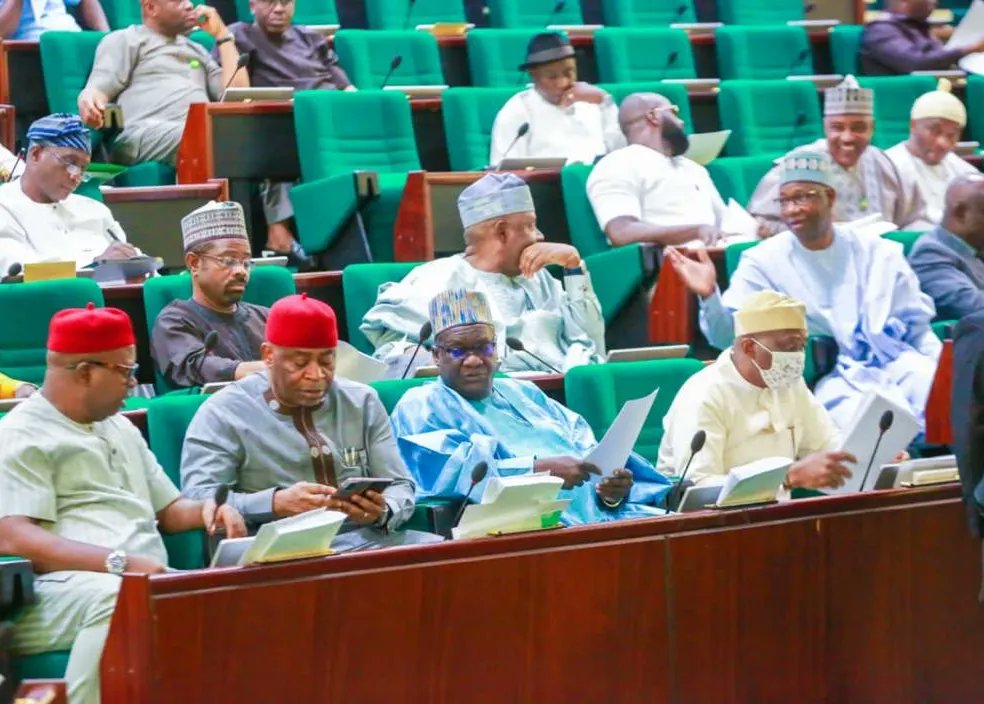Business
Reps Probe MDAs Over Illegal N600bn Expenditure

The House of Representatives Committee on Public Accounts has commenced a full-scale investigation of 115 ministries, departments and agencies of the Federal Government for spending over N600billion outside their approved budgets on salaries and allowances.
Office of the Auditor General for the Federation, which issued a query on the illegal expenditure, said the amount was spent between 2018 and 2022.
According to the audit query, “Audit observed that 203 MDAs exceeded their Personnel Cost budget by N641,757,455,172. While 115 MDAs had zero Personnel Cost, even though there was budget allocation for them, the sources of extra funds for salaries and wages in 103 were not disclosed.
“Also, the reasons for zero Personnel budget allocation for the 115 MDAs were not stated, despite the fact that the MDAs under defence had annual budgets approved for them”.
The OAuGF advised the Office of the Accountant General of the Federation to investigate the sources of the extra-budgetary expenditures and reasons for non-compliance with financial regulations.
The office stated that failure to justify the sources and reasons for the expenditures totalling N641.75bn, “the officers in charge should be held pecuniary responsible.”
Acting Accountant General of the Federation, Sylva Okolieaboh, had told the committee that some of the expenditures were made based on existing circulars and directives.
Chairman of the committee, Oluwole Oke, however, said, “This is an aberration of the Constitution of the Federal Republic of Nigeria. It is clear rape of Financial Regulation and Public Procurement Act.
“Nobody has the power to appropriate any money to any MDAs except the National Assembly, through the budget from Mr President. Before the passage of Mr President’s Appropriation Bill, it has to pass through stages, and after the passage, it has to be returned to the Mr President for his assent.
“But we have discovered a situation where some ministers and heads of MDAs are fond of appropriating funds and approving several millions of naira for spending without such coming to the parliament, but relying on circulars and directives. This is illegal and we are going to stop it.”
Oke, consequently, directed the Accountant General of the Federation to make available the list of the 115 MDAs involved in the flagged expenditures to the committee.
The Chairman added that in the spirit of fair hearing, the erring MDAs would be summoned to explain the allegation against them in the audit query.
Earlier, Okolieaboh had expressed appreciation for cooperation being extended to his office by the parliament since he assumed office, while pledging that all invitations from the lawmakers would receive prompt responses from his office in the national interest.
Business
NCDMB, Dangote Refinery Unveil JTC On Deepening Local Content
Business
Food Security: NDDC Pays Counterpart Fund For LIFE-ND Project
Business
Replace Nipa Palms With Mangroove In Ogoni, Group Urges FG, HYPREP
-
Rivers4 days ago
HOS Tasks Rural Dwellers On RAAMP … As Project Sensitization Team Visit Degema, AKULGA
-

 Politics4 days ago
Politics4 days agoTinubu’s Contribution To Buhari’s Presidency Marginal – Ex-SGF
-
Opinion4 days ago
Is Nigeria Democratic Nation?
-

 News4 days ago
News4 days agoRSG Tasks Rural Dwellers On RAAMP …As Sensitization Team Visits Akulga, Degema, Three Others
-

 News4 days ago
News4 days ago2027: I Stand With Southern Presidency -Ortom
-
Politics4 days ago
Lagos LG Polls: Police Restrict Movement, Tightens Security
-

 Politics4 days ago
Politics4 days agoReps Constitution Review Committee Holds Zonal Hearing For Rivers, C’River, Akwa Ibom In Calabar
-
Opinion4 days ago
Checking Herdsmen Rampage

